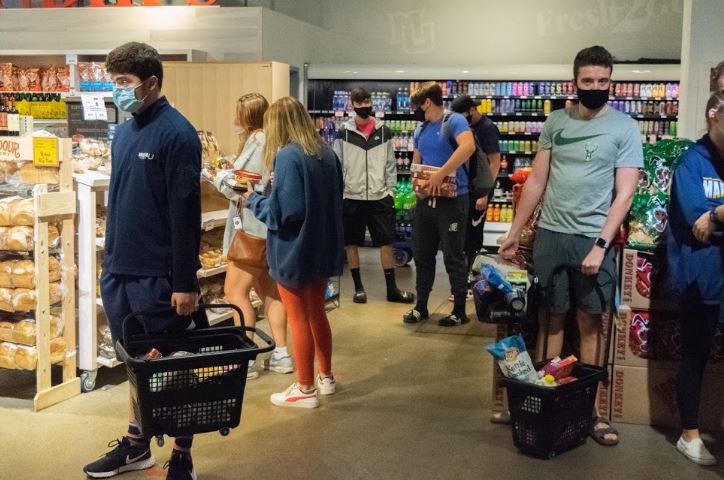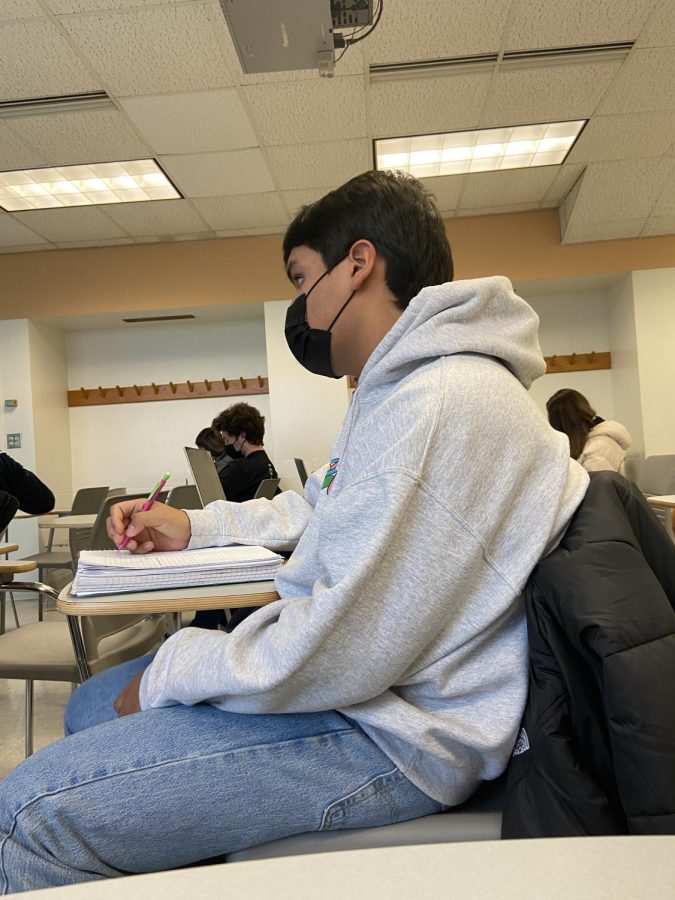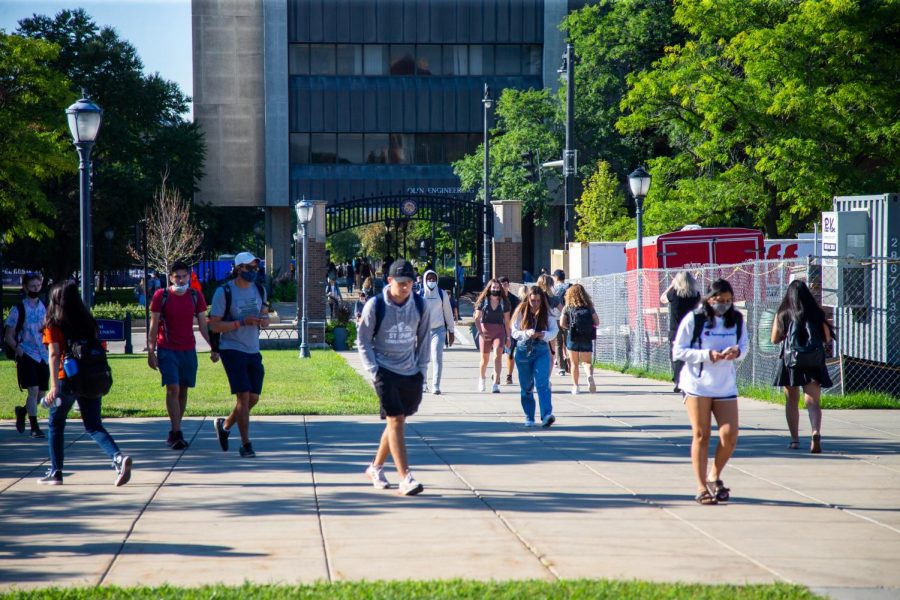Students began hurriedly filing in and out of Schroeder Hall shortly after 7 p.m. Monday, looking to pick up groceries, speak with friends or call family members.
Schroeder residents had just received an email stating that all residents were required to go into quarantine for the next 14 days, beginning at 10 p.m. The email, sent from Xavier Cole, vice president for student affairs and chair of the COVID-19 Response Team, stated that the quarantine was put in place “in response to a confirmed cluster of increasing COVID-19 cases among residents of the hall.”
The email informed residents that 3% of the 373 Schroeder residents tested positive for COVID-19, meaning there are approximately 11 or 12 confirmed cases in the building.
Residents said they received no warning of their quarantine before the email was sent.
“They blindsided us completely,” Schroeder resident Sarah Kreppein, a sophomore in the College of Communication, said. “I feel like they needed to be way more informative … There was no warning. None. Like, not at all.”
Lauren Eis, Schroeder resident and a sophomore in the College of Nursing, said the news was “shocking” and “frustrating.”
“I feel like we haven’t really even talked about the rise of COVID-19 cases, and this just comes out,” Eis said.
Eis, who is from California, said she had no possibility of traveling home. She said the main reason she was on campus this semester was because she has in-person labs for nursing, and now she will not be able to attend those labs.
“We don’t know how long this is going to last.” Eis said.
Megan Kuczkowski, a sophomore in the College of Education, said she was unaware of the cases until the news came out that students on her floor had contracted the virus.
“Our floor was affected. But I just found that out five minutes ago,” Kuczkowski said. “I was not told directly by my RA or anything.”
Angelica Wacker, sophomore in the College of Health Sciences, and Grace Trojan, a sophomore in the College of Nursing, both live on the same floor as Kuczkowski. Wacker said they don’t know the number of people on their floor who tested positive.
“I know that we’ve seen a couple (of) times, like PPE, cleaning out rooms, but we’ve never been told that like anybody on our floor (had COVID-19),” Wacker said.
Trojan said her reaction to the news was “hectic.”
“I don’t know the exact time, but they told us at like 7:30 that we couldn’t leave after 10, that at 10 o’clock we had to be back here. So we’re kind of like all scrambling to get stuff,” Trojan said.
Students expressed concerns about adjusting their daily routines during the next two weeks.
“I’m just like really stressed out, because … I don’t know, the last two weeks we’ve just been here living semi-normal lives and it’s already been difficult, and now I just think it’s going to get even more difficult,” Wacker said. “Like where am I supposed to work out? How am I supposed to eat all the food here? I don’t know.”
Students said some Schroeder residents were crying and calling family, trying to figure out their plans for the next two weeks. The email provided details about the 14-day building-wide quarantine, including that students were recommended to not leave town and remain in their residence hall as the safest course of action, and that the Schroeder dining hall would be open solely to Schroeder residents and would offer grab-and-go options.
Julia Zima, a sophomore in the College of Arts & Sciences, had concerns about her meal options for the next two weeks because she is a vegan.
“It definitely makes sense … it’s just kind of scary to know we’re so out of control of the situation, but it’s understandable why it’s happening,” Zima said.
While many students left the building to stock up on groceries, one trio of friends went to the green space outside Schroeder during their last couple hours before quarantine to play volleyball.
“We’re going to try to play outside a little bit. Get some sunshine,” Ryan Olsker, a sophomore in the College of Health Sciences, joked.
Emma Vosters and Megan Lund, sophomores in the College of Health Sciences, hit the volleyball back and forth with Olsker. Both Vosters and Lund said that while only a small percentage of students in Schroeder had COVID-19, they still understood that the university had to make decisions for student safety.
“They kind of have to do stuff like this, but it still sucks.” Vosters said.
This story was written by Kelli Arseneau. She can be reached at kelli.arseneau@marquette.edu






